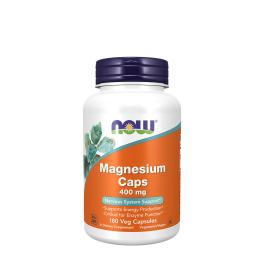Magnesium is a mineral that influences more than 300 enzymatic reactions (through proteins). Among other things, it plays a role in protein synthesis (production), the proper functioning of the muscular and nervous systems and energy production (glycolysis, breakdown of stored sugars in the body). This makes it particularly important for people who do mental and physical work and for athletes. Adequate magnesium levels can also prevent muscle cramps.
Magnesium also plays a role in the binding of nucleic acids that make up DNA (hereditary material), helping to structure DNA and in the process of making it. Preserving the proper structure of DNA is important for, among other things, avoiding various autoimmune and cancer diseases and reducing the ageing process.
It also plays a role in our immune system by stimulating the production of glutathione, the enzyme responsible for breaking down harmful free radicals (hydrogen peroxide), which can also prevent greying.
Magnesium also plays a role in the transport of calcium and potassium, a process important for proper muscle contraction and heart rhythm. It also plays a role in regulating blood pressure.
It also plays a role in bone health. 60% of magnesium is stored in bones - on the surface of a bone-rich calcium mineral called hydroxyapatite. To reinforce this, low magnesium levels are a risk factor for osteoporosis, as in the absence of magnesium, hydroxyapatite has more difficulty maintaining its structure, leading to the breakdown of bone tissue.
Magnesium-rich foods:
- Pumpkin seeds, almonds, cashew nuts, hazelnuts
- Chia seeds
- Spinach
- Black beans, soybeans
- Rice, potatoes
- Salmon
Recommended daily intake of magnesium:
- For men: 400 mg
- For women: 310 mg
- During pregnancy: 350 mg
- During breastfeeding: 310 mg
For healthy people, excessive magnesium intake is presumably not harmful. However, excessive intake may cause side effects in people with kidney disease.








































